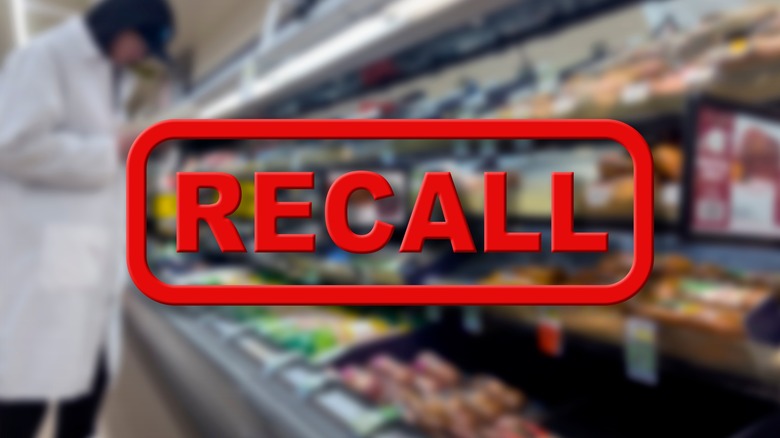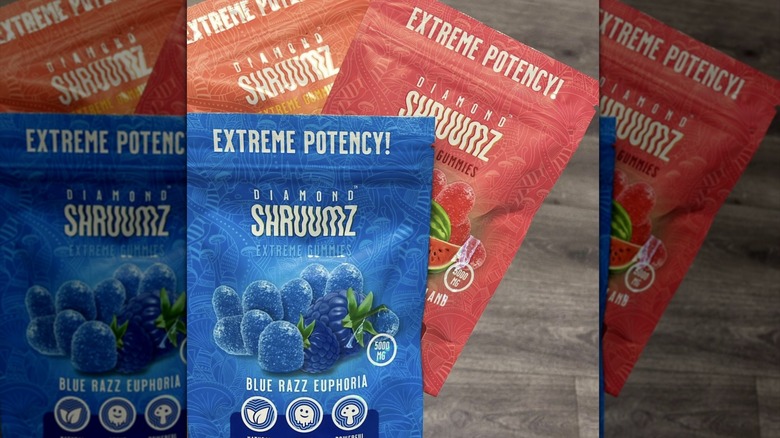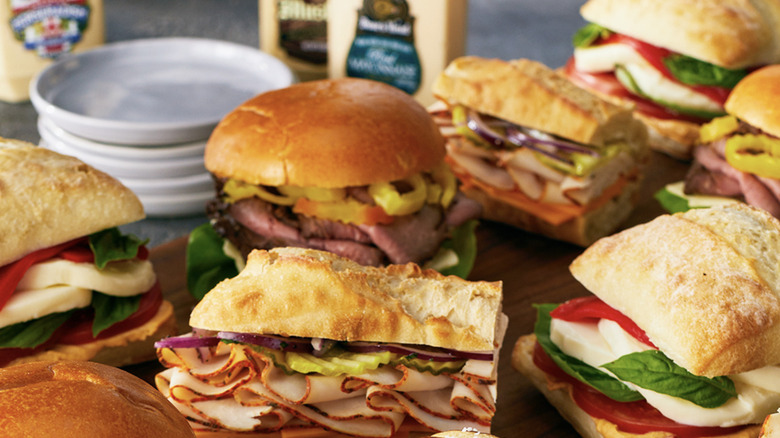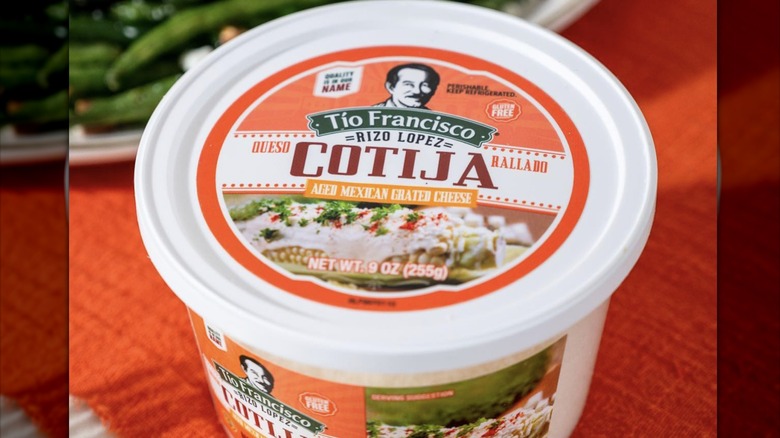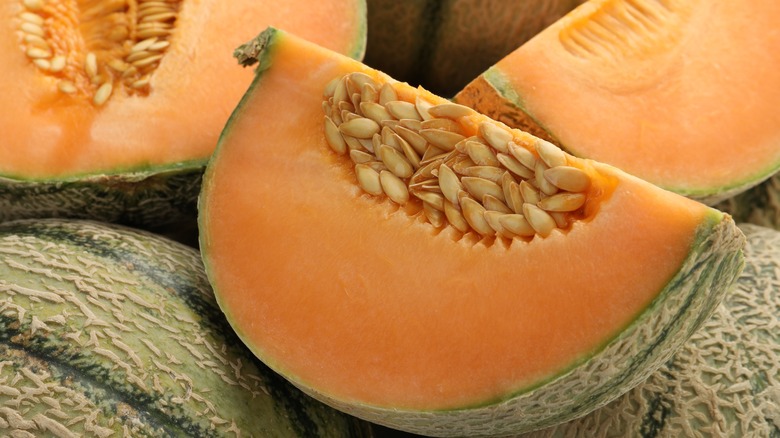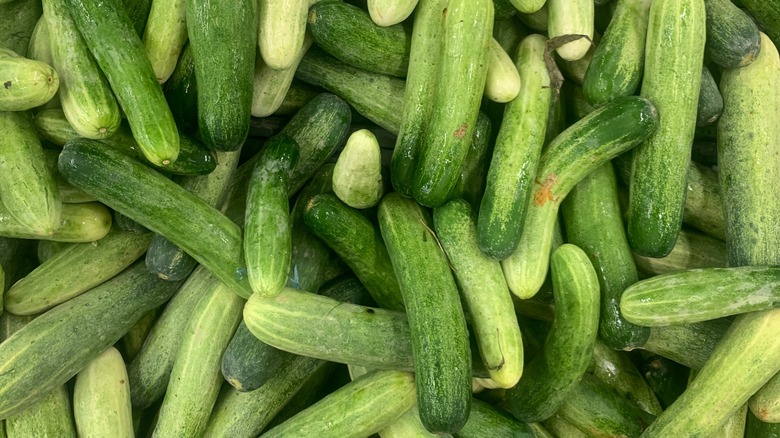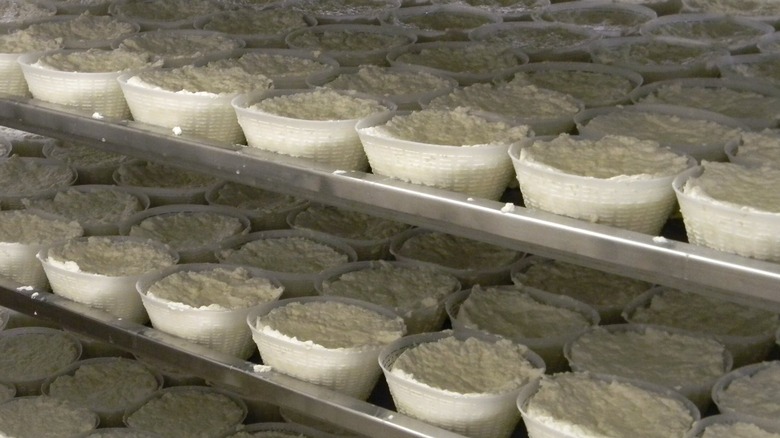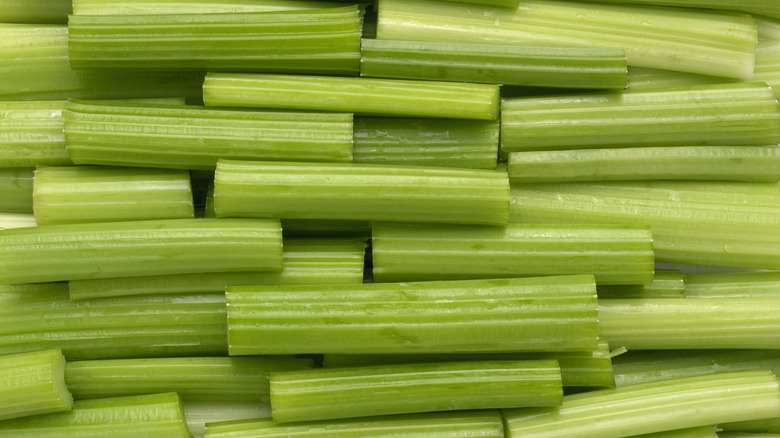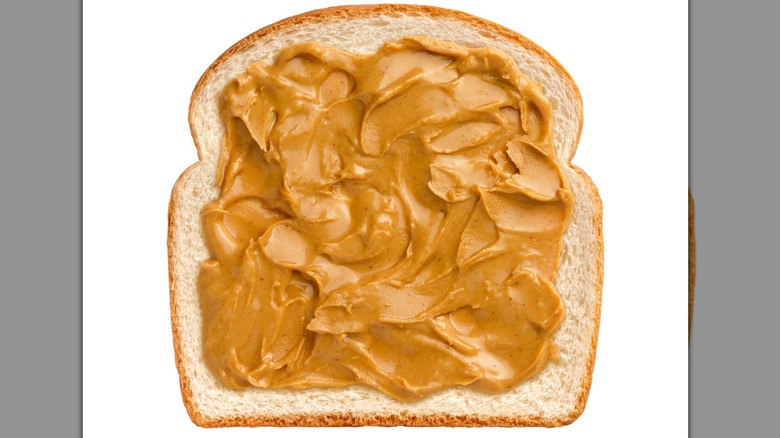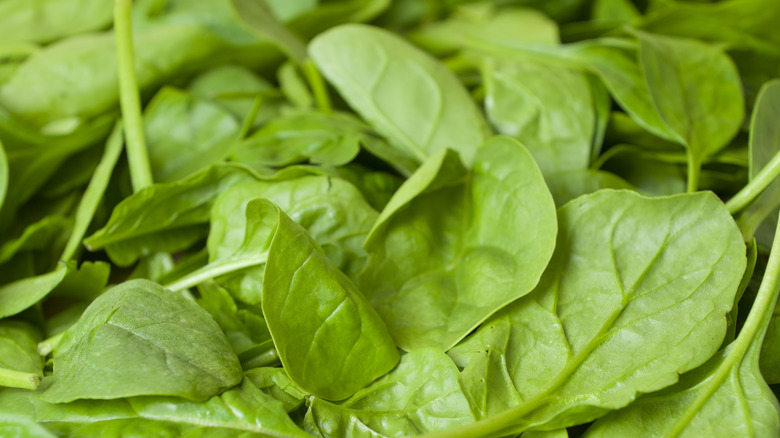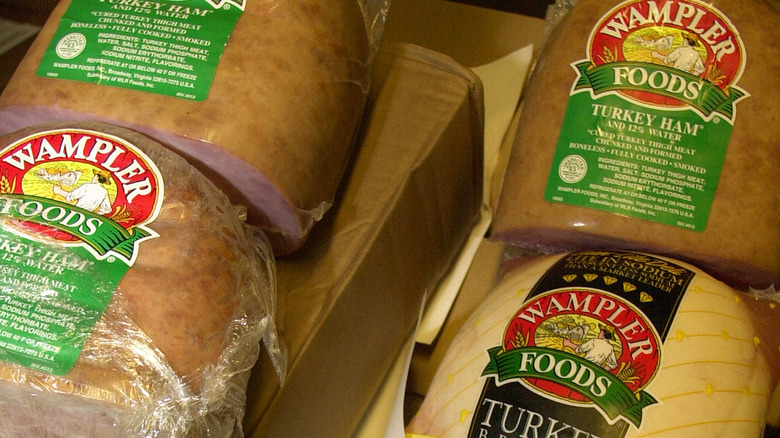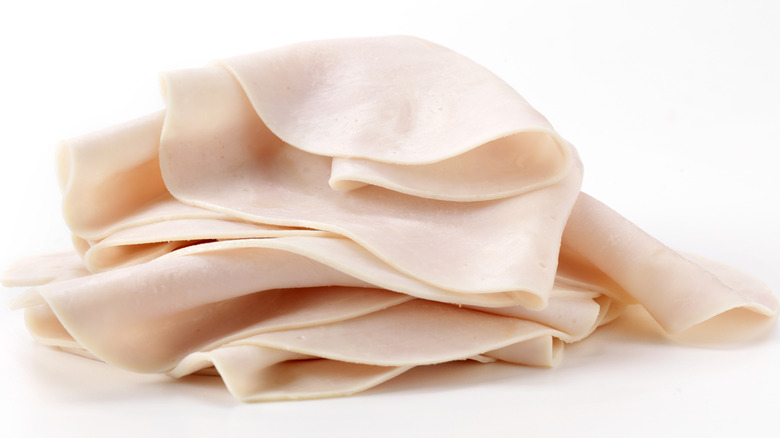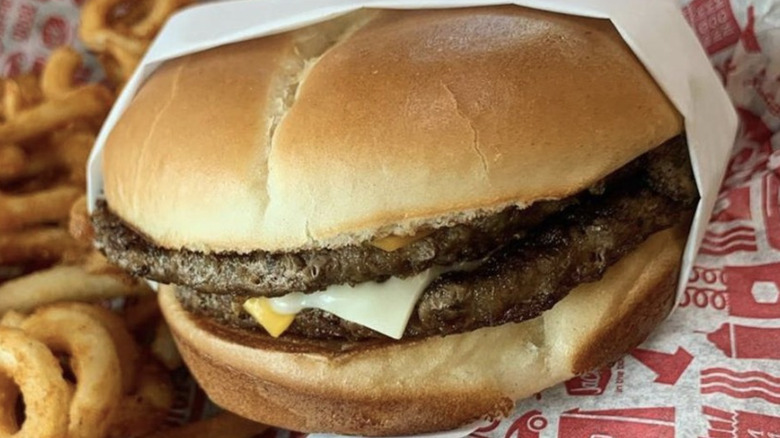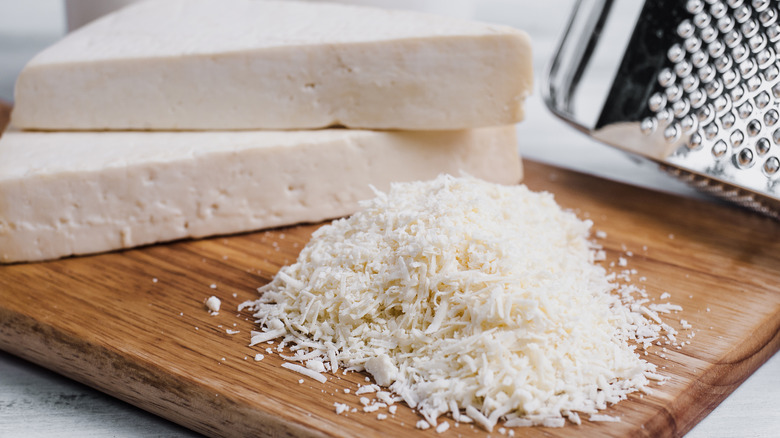The 15 Most Deadly Recalled Foods In US History
With all of the food safety regulations that exist in the U.S. today, one would think the risk of contracting a deadly food borne illness is at an all-time low. This is not the case. In 2024 alone, the U.S. has seen over a dozen deaths associated with recalled foods.
No one should die from eating fresh produce or miscarry a child after having a sandwich, yet it happens. Historically, food manufacturers have struggled to uphold safety standards that prevent food borne pathogens from poisoning domestically consumed products. A lack in quality control testing on imported goods or unsanitary conditions inside processing plants are some of the root causes that allow contaminated food to reach consumers' hands.
The Food and Drug Administration (FDA) and the United States Department of Agriculture (USDA) are tasked with recalling potentially deadly foods that are available to the public. Too often, these federally-appointed agencies aren't aware of which foods are tainted until people get sick. The stories covered here illustrate instances where food recalls weren't issued soon enough, resulting in multiple deaths. The fact that many of these tragedies occurred recently, shows that the food industry's health and safety standards still have a long way to go.
Diamond Shruumz edibles in 2024 - three deaths
Psychotropic edibles aren't on everyone's grocery list, but there is a demand on the modern market. Prophet Premium Blends of Santa Ana, California hoped to meet that demand with Diamond Shruumz edibles, but found itself implicated in three deaths instead. Adverse effects forced a recall of all Diamond Shruumz products in June 2024.
Mental health benefits associated with microdosing aided the marketability of Diamond Shruumz muscimol-infused cones, chocolate bars, and gummies at U.S. vape shops and online. The recall was issued after repeated reports of seizures, involuntary muscle contractions, agitation, confusion, abnormal heart rates, nausea, and vomiting were linked to Diamond Shruumz. The FDA cited toxic muscimol levels as the recall reason. By July 2024, nearly 60 reported illnesses (including some in children) and two deaths involving Diamond Shruumz were under investigation.
As of October 31, 2024, that count rose to 180 reported illnesses, 73 hospitalizations, and three deaths. Diamond Shruumz sample results released by the FDA indicate varying combinations of troubling ingredients. Among them are psilocin — a Schedule I-controlled substance, pregabalin — a prescription anti-convulsant, and muscimol — a psychoactive compound found in amanita muscaria mushrooms.
Boar's Head deli meat in 2024 -10 deaths
In July 2024, meat slicers nationwide ground to a halt after Boar's Head liverwurst samples taken by the Maryland Department of Health tested positive for Listeria monocytogenes and were recalled. Boar's Head bacon, numerous types of ham, bologna, and salami were recalled as well — accounting for 207,528 pounds of meat. Two deaths and 34 illnesses had already been reported.
Damage control was intense. The Class I recall was expanded on July 30, 2024 to include another 71 products and seven million pounds of meat. The USDA's Food Safety and Inspection Service (FSIS) traced the contamination source to a Boar's Head plant in Jarratt, Virginia.
Between August 2023 and August 2024, the FSIS made a series of visits to the Jarratt plant and noted 69 noncompliances. Rotten meat buildup on rusty equipment, meat-clogged drains, moldy walls, puddles of blood, and insect infestations were among the violations observed. Boar's Head's persistent negligence resulted in 59 hospitalizations and ten deaths. The Jarratt plant ceased operations in July 2024 and hasn't reopened. Legal action, including multiple wrongful death lawsuits, have permanently damaged Boar's Head's once-illustrious reputation.
Rizo-López Cheeses in 2024 - two deaths
On September 27, 2024, the FDA slammed Rizo-López Foods with a permanent injunction, legally barring the company from manufacturing goods until its Modesto, California facility complies with federal safety and sanitation requirements. Had Rizo-López run a cleaner operation, it wouldn't have sold listeria-laden cheeses to the public. Moreover, the two deaths, one miscarriage, and 26 reported illnesses stemming from the contamination wouldn't have happened.
Testing performed by the Hawaii State Department of Health in January 2024 identified Listeria monocytogenes in Rizo-López Aged Cotija Mexican Grating Cheese. The bacterial strain matched the one responsible for multiple listeriosis cases the U.S. Centers for Disease Control and Prevention (CDC) was investigating. On January 11, 2024, Rizo-López recalled 344 cases of its Aged Cotija .
A subsequent FDA inspection of Rizo-López's facility, unearthed the same listeria strain in two locations and a generally unsanitary environment. Then, Rizo-López recalled its entire inventory due to listeria. Its various dairy products were sold under many different brand names including Tío Francisco and 365 Whole Foods Market.
Cantaloupe in 2023 - 15 deaths
As several brands of cantaloupe were being recalled in late 2023, salmonellosis was tearing through the U.S. and Canada. Clusters of cases in both countries led to a collaborative effort from the CDC, FDA, and Canadian public health officials to find the contamination source. As investigators narrowed in on Mexican cantaloupes sold under multiple brand names, individuals who had eaten the salmonella-tinged melon were dying.
In Canada, a mass recall was issued for cantaloupe sold between October 10 and November 24, 2023 under the brands Malichita and Rudy. Both brand stickers bore a "4050" PLU code. Canada's 190 lab-confirmed salmonella cases resulted in 68 hospitalizations and nine deaths.
On November 6, 2023, U.S. manufacturer Sofia Produce recalled its Trufresh cantaloupe, which was also produced by Malichita and labeled with a "4050" PLU code sticker. The recall was expanded on November 22 to include Rudy cantaloupe. Throughout November and December, more recalls were initiated for whole cantaloupe and fruit cups or trays containing these brands' compromised products. Of the 44 states affected, 158 related hospitalizations and six deaths were reported.
Cucumbers in 2015 - four to six deaths
A salmonellosis serotype known as Salmonella Poona that was traced back to cucumber growers in Mexico, hit the U.S. hard in September 2015. At least 907 individuals across 40 states fell ill, 204 were hospitalized, and six deaths were reported. Public health officials determined that the cumbers were distributed around the U.S. by Andrew & Williamson Fresh Produce and sold under the label Limited Edition.
On September 4, 2015, Andrew & Williamson launched a Class I recall for its Limited Edition cucumbers and named possible salmonella contamination as the reason. That same day, Triple B Corporation of Anchorage, Alaska recalled 78 two-pound bags of sliced cucumber. The bags were purchased wholesale from Andrew & Williamson to be used in the deli departments of retail stores.
One week later, Custom Produce Sales recalled its Fat Boy label cucumbers which had been supplied by Andrew & Williamson. As the CDC looked into the fatalities connected to the Salmonella Poona outbreak, it could not confirm that two of the three deaths reported in California were directly linked to the consumption of Mexican-grown cucumbers. Illnesses related to potential cross-contamination were never determined.
Frescolina Marte Ricotta Cheese in 2012 - four deaths
When a food recall for Frescolina ricotta cheese hit the U.S. in September 2012, American food factories weren't to blame. This time, listeria from Fattorie Chiarappa's cheese production facility in Conversano, Italy was to blame. The FDA immediately enforced strict import regulations upon the Italian cheese producer, but stateside, four people had already lost their lives.
The listeria strain associated with 22 reported illnesses across 13 states and Washington D.C. was rare. Public health investigators used pulsed-field gel electrophoresis (PFGE) to trace the contamination's origins to Fattorie Chiarappa's ricotta, which was distributed throughout the U.S. by Forever Cheese, Floyd Peterson Company, and Whole Foods. Forever Cheese and Floyd Peterson recalled Frescolina ricotta on September 10, 2012. Whole Foods followed suit two days later.
These measures happened too late. Among the deaths connected to the listeria breakout was an infant boy, whose premature birth at 27 weeks was spurred by contracting listeriosis in the womb. The infant's death and one survivor's battle with listeria-induced meningitis were motivating factors behind lawsuits lobbied at Forever Cheese and Floyd Peterson.
Jensen Farms Cantaloupe in 2011 - 33 deaths
Colorado-based Jensen Farms had a lot of answering to do in 2011 after its cantaloupes were traced to a wave of listeria cases that left 33 dead. Brothers Eric and Ryan Jensen faced criminal charges brought forth by the U.S. Attorney's Office and the FDA. After investigations performed by the FDA and CDC, it was alleged that the Jensen brothers knowingly implemented insufficient cleaning methods for its cantaloupe yet shipped them anyway. Six shipments of improperly cleaned cantaloupe were distributed to 28 states.
An investigation of the Jensen brothers' fourth-generation farm revealed signs of negligence. Pooled water from dripping condensation tested positive for listeria. The equipment intended to clean the cantaloupe was not only unclean, it was designed to sanitize potatoes.
The Jensen brothers were sentenced to five years' probation and six months of in-home detention. A $150,000 fine of restitution and 100 hours of community service were also part of the sentencing. It was a reckoning for U.S. farmers, to ensure that the goods they grow and distribute are safe for public consumption. In addition to the 33 individuals who died, 110 illnesses in 28 states were reported.
Sangar Fresh-Cut Produce Celery in 2010 - five deaths
Listeria-contaminated celery from a produce factory in Texas became a hot topic for food safety advocates' in 2010, who were urging the Senate to pass a bill that would tighten health and safety regulations in domestic food processing facilities. The San Antonio produce factory belonged to Sangar Fresh-Cut Produce and its celery was implicated as the source of an uptick in listeriosis cases within Texas, with some instances resulting in death. When the FDA inspected Sangar's premises and tested its celery in October 2010, listeria bacteria found in the celery and on food contact surfaces was identical to the strain associated with the deceased.
Sangar reportedly resisted the FDA's push toward a recall, insisting that in-house testing had cleared the product. The Texas Department of State Health Services wasn't buying it and shut down the facility on October 20, 2010. Sangar's cut celery wasn't sold in grocery stores, it was wholesaled to schools, restaurants, hospitals, and other institutions. The five individuals who died after eating Sangar's celery did so while their health was compromised. The listeriosis they contracted afterward was too much for their bodies to handle.
King Nut Peanut Butter in 2008-2009 - six deaths
The peanut butter industry as we know it came crashing down in 2009 when the insidious methods of mega manufacturer Peanut Corporation of America (PCA) were exposed in deadly fashion. That January, King Nut Companies recalled roughly 1,000 cases of salmonella-afflicted peanut butter made with PCA's product. King Nut wasn't available to the general public, but was widely used in nursing homes and other institutions. In 2008, bacteria-laced batches consumed by a vulnerable population caused the deaths of six people.
PCA owner Stewart Parnell's callous mantra "just ship it" created one of the most tragic food recalls in history. Three additional deaths were attributed to store-bought snacks made with PCA peanut butter, yet King Nut's product accounted for the most casualties. Parnell's negligence and greed earned him a 28-year prison sentence.
Unlike the now-shuttered PCA, King Nut managed to survive the recall. Still, atonement was fleeting. Their company's catastrophic entanglement with PCA and the lives lost because of it are conveniently omitted from the historic timeline published on King Nut's website.
Dole Spinach in 2006 - three deaths
In the mid-2000s, spinach was a power player among health-conscious eaters, but a ghastly E.Coli recall in 2006 took fresh spinach from superfood to super-dangerous. On September 11, 2006, the CDC learned of a cluster of food-poisoning cases in Wisconsin linked to bagged spinach. The cluster's geographical scope widened in a matter of days and included one death, prompting the FDA to put out a national warning against consuming fresh spinach. Meanwhile, investigators focused on California grower Natural Selection Foods as the orchestrator of the problem.
The FDA named field-level contamination at one of Natural Selection Foods' farms as the likely source of the E. coli O157:H7 outbreak. Natural Selection Foods supplied spinach to 30 brands, yet Dole was later determined as the sole carrier of the tainted spinach. Even so, brands like RLB Food Distributors, Pacific Coast Fruit Company, and Triple B Corporation recalled spinach products out of an abundance of caution. Before the outbreak was effectively contained, Dole's fresh spinach caused 205 confirmed E.Coli cases and four deaths.
Pilgrim's Pride poultry in 2002 - seven deaths
In October 2002, USDA investigators uncovered listeria bacteria in floor drains at a Wampler Foods plant in Franconia, Pennsylvania, that matched the strain responsible for seven deaths and three miscarriages. Wampler's parent company, Pilgrim's Pride, attempted to thwart the blame, claiming listeria found in pre-cooked poultry at a competing facility was behind the fatalities. The feds shut down the plant anyway and Pilgrim's Pride recalled 27.4 million pounds of chicken and turkey meat.
The staggering recall quantity was an expansion of a recall Pilgrim's Pride announced days earlier. The company pulled 295,000 pounds of ready-to-eat poultry from distribution after samples tested positive for listeria. The listeria found in the initially recalled products weren't a match to the strain identified connected to the deadly outbreak. The 2,695,000-pound meat recall kicked off a lengthy investigation by the USDA's Office of Inspector General. Details of the investigation remain under-wraps, but allegations that Pilgrim's Pride delayed reporting its listeria findings to the USDA in 2002 are likely part of the inquiry.
Cargill deli meat in 2000 - four deaths
Ecological destruction, price gouging, and child labor are just a few of the unsavory practices agribusiness giant Cargill has engaged in, and many food recalls have peppered its greed-paved path. A recall of Cargill deli meat in 2000 was one of its worst — four people wound up dead. The December 2000 recall affected 16.7 million pounds of Cargill-produced meat that tested positive for Listeria monocytogenes. The announcement came after a months-long, multi-state listeria outbreak led investigators to Cargill.
A handful of deli brands were looped into the recall, including Boar's Head, Dine Rite, Honeysuckle White, Old South, Owen's, Plantation, and Riverside. In addition to the four deaths, Cargill's adulterated deli meat was responsible for three miscarriages. Listeriosis is particularly deadly to babies in utero, and although a pregnant woman who contracts listeriosis may not die, there is an increased likelihood that the fetus will. Quantity-wise Cargill's deli meat recall was the largest of its kind up to that point, though it would be far from the last to rattle the company's mammoth enterprise.
Sara Lee meat in 1998 - 15 deaths
Household name Sara Lee's attempts to conceal listeria found in its hot dogs and deli meats backfired in 1998, causing 15 deaths, six miscarriages, and 108 hospitalizations. A December 1998 recall from the brand that started with 15 millions pounds of meat, eventually grew to 35 million pounds. Investigators who interviewed former employees of Sara Lee's Bil Mar plant in Michigan said that cursory in-house testing and secrecy were deeply woven into the facility's daily operations. A demolished refrigeration unit was cited as a cause for bacterial contamination entering the plant's environment.
In 2001, Sara Lee pleaded guilty in federal court for its multi-state distribution of adulterated goods. The company paid a $200,000 fine and agreed to donate $3 million to food safety research. A civil suit levied by the U.S. government was settled for $1.2 million while five wrongful death lawsuits filed on the victims' behalf saw Sara Lee pay another $1.6 million settlement. In the aftermath, Sara Lee took the path of least resistance. It published ads in 80 newspapers to assure the public its meat was safe, and made good on its promise to promote better food safety standards.
Jack in the Box hamburgers in 1993 - four deaths
A deadly E.Coli disaster in Jack in the Box's history is something this fast food chain would rather forget. It happened in 1993, and although the hamburgers were recalled, four children died from eating them. Public health officials in Washington state determined that the E. coli 0157:H7 contamination occurred at slaughterhouses owned by Vons Companies — the chain's hamburger supplier — however, Jack in the Box didn't require testing prior to shipment, then proceeded to undercook the meat.
The fatalities, along with 700 reported illnesses were a catalyst for major regulation changes concerning commercial meat. The Hazard Analysis and Critical Control Point (HACCP) system, developed decades earlier by NASA and Pillsbury, became mandatory in May 1993. A zero fecal tolerance for beef carcasses was also mandated.
In the wake of Jack in the Box's recall, E. coli 0157:H7 was officially declared a contaminant in beef. Prior to the '90s, the mortal dangers of this bacterial strain went unrecognized. Sadly, it took children dying to motivate change.
Jalisco queso fresco and cotija cheeses in 1985 - 28 deaths
The mortal consequences of listeriosis became all too real in 1985 when 28 deaths were caused by Jalisco brand Mexican-style soft cheese. The fatalities were concentrated in the Los Angeles area and directly linked to Jalisco's queso fresco and cotija cheeses. Among the lives lost were 18 adults, 10 newborns, and 20 miscarried fetuses. The outbreak was the most tragic of its time, accounting for 142 confirmed listeriosis cases between January 1 and August 15, 1985.
Of the reported cases, over half were pregnant women who fell ill after consuming Jalisco cheese. The CDC tested samples of Jalisco queso fresco and cotija cheese purchased from Los Angeles markets. Four samples tested positive for Listeria monocytogenes serotype 4b. The nearly two month range between the purchased products' expiration dates suggested that contamination in Jalisco's production facilities had been there awhile.
Recall alerts for Jalisco cheese were announced and its factory was closed. Warnings were also issued Jalisco's sibling cheese brands Guadalajara, Jimenez, and La Vaquita. Analysis conducted by public health officials pointed to unpasteurized milk incorporated in Jalisco's cheese manufacturing process as the source of the lethal bacteria.
